LSI Keywords: What are They and How to Use Them for SEO
Contents
What Are LSI Keywords?
Latent Semantic Indexing (LSI), or Latent Semantic Analysis (LSA), is a natural-language processing technique developed in the 1980s. This computer program was designed to learn a wide variety of synonyms and polysemy based on context. It’s a method that uses mathematical techniques to find relationships between words and concepts within a piece of content.
In terms of SEO (search engine optimization), LSI (Latent Semantic Indexing) keywords are words that are related to a main keyword and are seen as semantically relevant. For example, if you have a post on “Windows”, your post should logically have “Bill Gates”, “Microsoft”, “Windows 10” and so on as mentions.

Does Google Use Latent Semantic Indexing (LSI)?
Some in the search community believe Google uses “LSI Keywords” in their search algorithm. However, according to Google’s John Mueller, LSI keywords don’t exist:
Noted search patent expert Bill Slawski has also been outspoken about the notion of Latent Semantic Indexing and SEO.
The truth is that LSI is old technology, especially in a world with constant advancements in Artificial Intelligence and Natural Language Processing.
LSI was created for static content in the 1980s, and it’s hard to see its application on the always-changing internet.
So, should you ignore LSI keywords completely?
How Do LSI Keywords Relate to SEO?
Google might not believe in LSI keywords, but it’s still trying to understand how words in a piece of content are connected.
During the early days of SEO, search engines would figure out the topic of a page based completely on the keywords found on the page.
For example, if the content had the word “keyword research tool” over and over again, search engines would understand that the content was about keyword research tools. So, many people use “keyword stuffing” at that time to rank high.
Today, instead of looking for one keyword on a post, search engines try to understand a page’s overall topic. They can judge keywords via context.
Following this logic, it’s easy to assume that if you want your content to rank well, you should worry about including a lot of LSI keywords in it.
Whether you call them LSI keywords or not, related keywords can improve your site’s SEO.
They are the ones helping Google understand your content topic.
How to Find LSI Keywords?
Now we come to the million-dollar question “How to find LSI keywords?” Honestly, finding LSI keywords is easier than ever. You can consider the following methods:
The easiest method to find LSI keywords is to enter your main keyword in the search bar. Next, scroll down to the “Related Searches” section.
For any search query, the related searches will tell you what you should include in your content along with the main keyword.
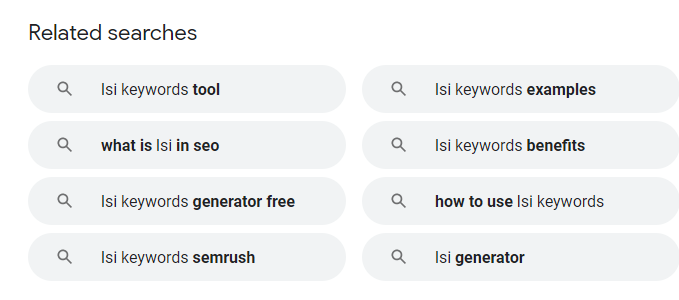
2. Google Autocomplete
Another easy way to discover LSI terms for free is through the autocomplete feature on Google. Whenever you type your query, Google provides multiple suggestions.
For instance, here is what you see on Google when you enter the keyword, “LSI keywords.” The words given in bold are the ones you should aim to add in your post.
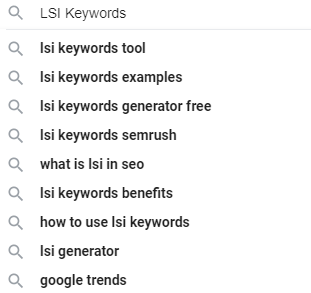
3. Analyze People Also Ask Results
Just as related searches on Google can be a great way to find related keywords to include within your content, you can also analyze the People Also Ask results for further ideas.
Enter your main keyword, wait a few moments, and you’ll see how the “People Also Asked” boxes expand out, giving you ideas for semantically related words to use.
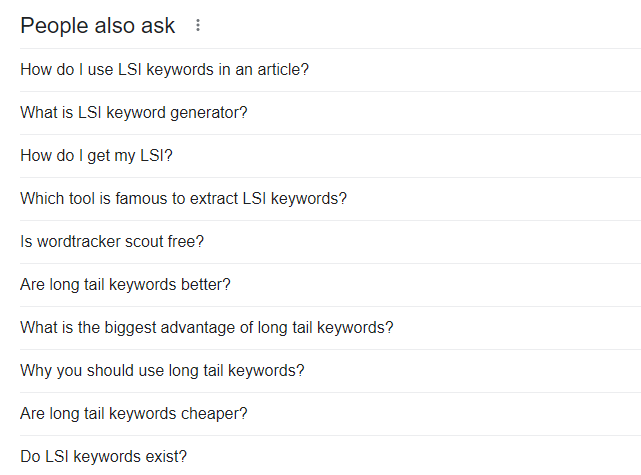
4. Use LSI Keyword Generator
There are also plenty of tools on the web to help you identify LSI keywords to use on your website. LSIGraph is one of them.
You can simply input your target keyword into the website, and it will generate a long list of LSI keywords to use, as well as show you the top performing content for that target keyword. Here is what it looks like:
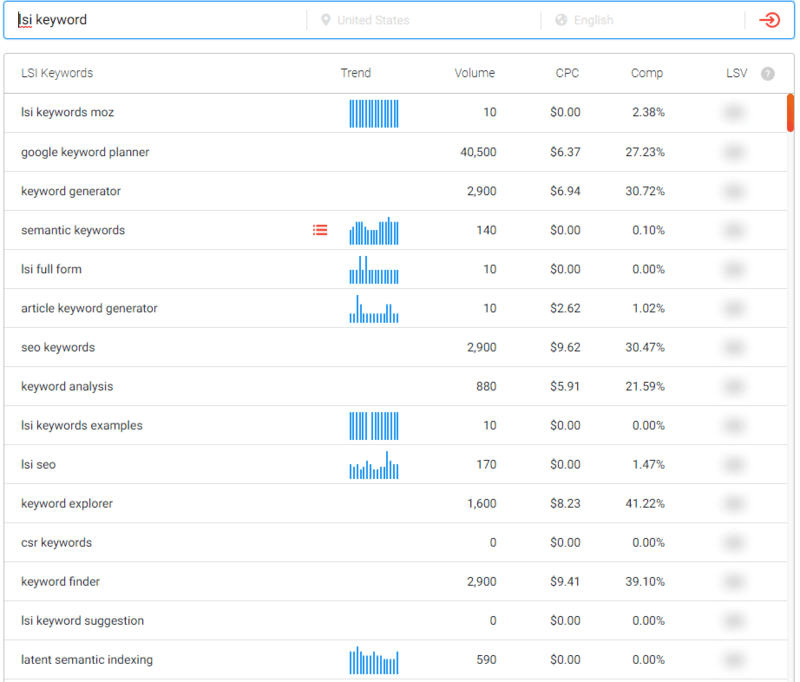
5. Use Keyword Research Tools
You can also use keyword research tools to find LSI keywords for a search phrase. We often make use of SEO tools such as Ahrefs and SEMRush for this purpose.
For Ahrefs – You can search LSI keywords through “Search Suggestions” from Keywords Explorer.
For SEMRush – You can enter a keyword and search LSI keywords in the “Related Keywords” section.
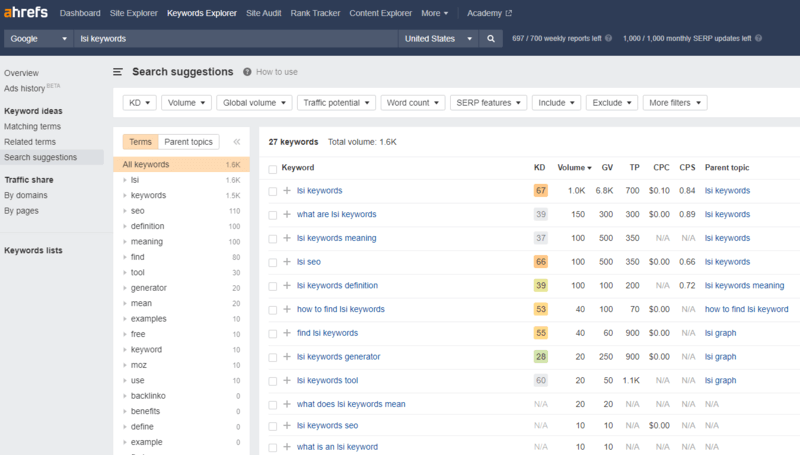
Wrapping Up
It doesn’t matter if LSI keywords really exist and are an important element of your SEO strategy.
What matters is that you definitely should be including semantically related words in your content. By finding semantically related keywords, you’ll get a better grasp of the scope of your topic. You’ll also be able to add sub-topics to your content and that will increase the topical authority of your articles and help them to rank higher in the search results. Search engines will like it and your audience will appreciate the result.
After compiling a list of LSI keywords, feel free to include your LSI terms:
- In your title tag
- In image alt text
- As a H2 or H3 subheader
- In your H1
- In the content itself
However, don’t try to stuff them just for the sake of it. Instead, add them wherever naturally possible.
